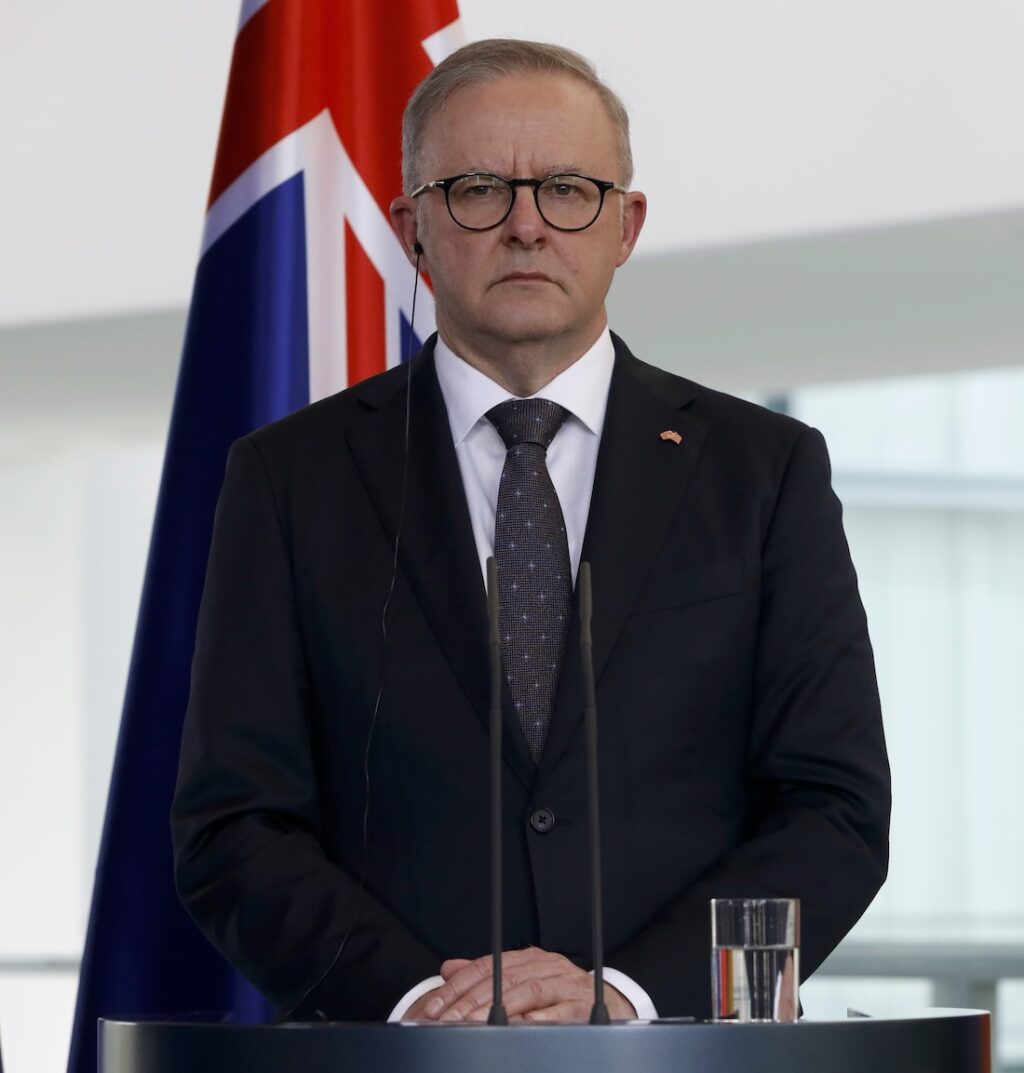
Berlin, Germany, July 10, 2023. Australian Prime Minister Anthony Albanese is received with military honors by German Chancellor Olaf Scholz at the Federal Chancellery in Berlin.
Prime Minister Anthony Albanese faces increasing scrutiny over his government’s foreign policy decisions, particularly its response to international conflicts and alliances. Critics argue that Albanese’s inaction regarding the ongoing situation in Gaza, alongside Australia’s military commitments under the AUKUS agreement, undermines the nation’s sovereignty and core values.
The AUKUS pact, which was initially framed as a strategic defence partnership, has drawn criticism for positioning Australia as a subordinate ally within the United States military strategy. This arrangement, which could see Australia investing approximately $368 billion in nuclear submarines, raises concerns about the potential for involvement in conflicts that do not directly serve Australia’s national interests. Critics assert that this commitment compromises Australia’s diplomatic independence and moral standing on the global stage.
The situation in Gaza has intensified scrutiny of Australian foreign policy. While international bodies, including the International Court of Justice, have raised alarms about potential genocidal actions, the Albanese government has not imposed sanctions or severed military ties with Israel. Instead, it has been accused of tacitly endorsing ongoing violence, which some view as a failure to uphold Australia’s commitment to justice and human rights.
Amin Saikal, an expert on international relations, noted, “Israel’s sovereignty, security and prosperity now ride on the back of America’s continued support.” He emphasized that without significant backing from the US, including military aid, Israel would struggle to maintain its operations in Gaza and the West Bank. This dynamic places Australia in a precarious position, as it becomes associated with actions that contradict its stated values of fairness and justice.
Albanese’s government has not only faced criticism from opposition parties but also from civil society. Many see the lack of decisive action as a signal that Australia’s values can be compromised for the sake of military alliances. As the violence in Gaza continues, the perception is that Australia is aligning itself with narratives that excuse human rights violations.
Compounding these concerns is the role of media in shaping public perception. Under Albanese’s leadership, the dominance of Rupert Murdoch’s News Corp in Australian media has been criticized for promoting narratives that support militarism and downplay the severity of Israel’s actions. Public broadcasters, such as the Australian Broadcasting Corporation and the Special Broadcasting Service, have also faced backlash for perceived biases, leading to calls for greater media diversity and accountability.
Critics argue that the Albanese administration’s lack of proactive measures further entrenches a culture of impunity regarding international law violations. Each instance of muted criticism of war crimes diminishes Australia’s moral authority and ability to advocate for justice globally.
As the government grapples with these challenges, it is crucial for Albanese to reassess Australia’s position within international alliances. Advocates call for a clear rejection of complicity in actions that violate human rights and a commitment to uphold international legal standards.
For Australia to truly embody its professed values, it needs to actively defend the principles of the UN Charter and the Geneva Conventions. Failure to do so risks normalizing a dangerous precedent where legality and morality are regarded as optional, particularly in the context of powerful allies.
The current trajectory raises critical questions about Australia’s future role on the world stage. History will remember not just the decisions made, but the values that guided them. As it stands, the Albanese government’s inaction may lead to a legacy of silence in the face of injustice, which could ultimately erode Australia’s standing as a proponent of fairness and democracy.






